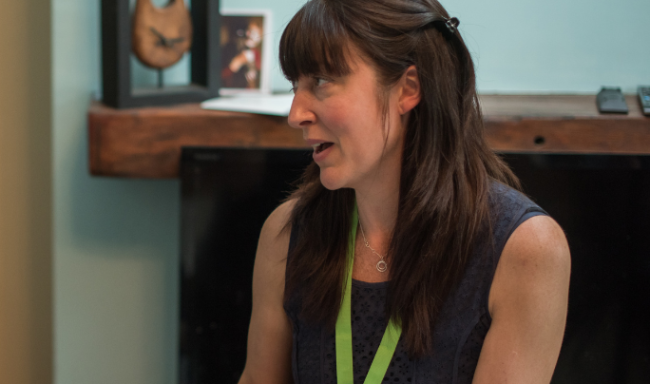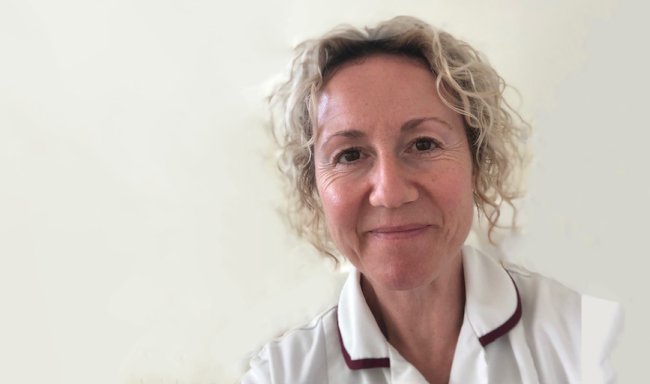What is a Speech and Language Therapist and how can they support you or your loved one?
A Speech and Language Therapist (SLT) provides treatment, support and care for children and adults who have difficulties with communication, or with eating, drinking and swallowing.
They are classed as allied health professionals (AHPs). They work with parents, carers and other professionals, such as Teachers, Dietitians, Occupational Therapists and Doctors. There are currently around 20,000 practising SLTs in the UK.
The need for a speech and language therapist for Huntington’s disease
People with Huntington’s disease can present with several acquired difficulties with eating, drinking and swallowing that a Speech and Language Therapist is well equipped to deal with. These might be, difficulty feeding themselves due to choreic movements, difficulty chewing and controlling food in their mouth, poor positioning, making high-risk choices or disliking assistance from carers.
SLTs have a good understanding of the cognitive changes in thinking and behaviour, which can affect how someone may approach food choices and risk. We can support our patients and carers to make safer choices and continue to maximise quality of life. Some foods, positions and feeding utensils can pose a higher risk than others and we are experienced in assessing and identifying this and making recommendations accordingly.
They can assess the safety of eating, drinking and swallowing and highlight risks. They can also support a person to make advanced decisions around alternative means of feeding such as PEG/Gastrostomy (feeding tube).
Eating and drinking risks
People with Huntington’s may face a range of risks, including choking, aspiration, malnutrition and dehydration. Don’t overmodify diet and fluids too soon, work with the Speech and Language Therapist and the person with Huntington’s to agree a reasonable care plan that balances risk and quality of life.
Choreic movements can make self-feeding difficult and frustrating, food can fall from the cutlery resulting in weight loss. However, food can be fortified to increase the calorie content and the nutritional value. Based on the Food First Approach, this is advised before supplement drinks are prescribed.
Sometimes, people with Huntington’s disease don’t recognise the risks linked to certain foods. This can mean they choose meals that increase the chance of choking or food going down the wrong way (aspiration). Speech and Language Therapists can guide carers on how to support safe food choices. They can also suggest ways to make meals more appealing, boost calories, and lower the risks linked to eating, drinking, and swallowing issues.
Understanding the neuropsychiatric changes in Huntington’s disease can allow carers to better understand why the person with Huntington’s might resist assistance with eating, drinking and swallowing. Speech and Language Therapists say that by empathising, you can continue to promote self-feeding, but in a safer way. Some people benefit from a liquidised diet so that they can continue to feed themselves from a beaker.
Understanding the risk of assisted hand-feeding is very important for carers. When the initial signal that food or drink is coming (their own hand-to-mouth movement) is removed, there is a greater chance of swallowing complications occurring such as aspiration. This is because they may not be ready and prepared to swallow. If a carer is assisting someone with a spouted beaker for example, the drink can funnel to the back of the throat and can cause coughing and sometimes aspiration. Assisted feeding also removes someone’s autonomy around eating and drinking and can raise a negative social stigma around eating, drinking and swallowing problems.
Thank you to Liz Lemon, Speech and Language Therapist for working on this article with us.





